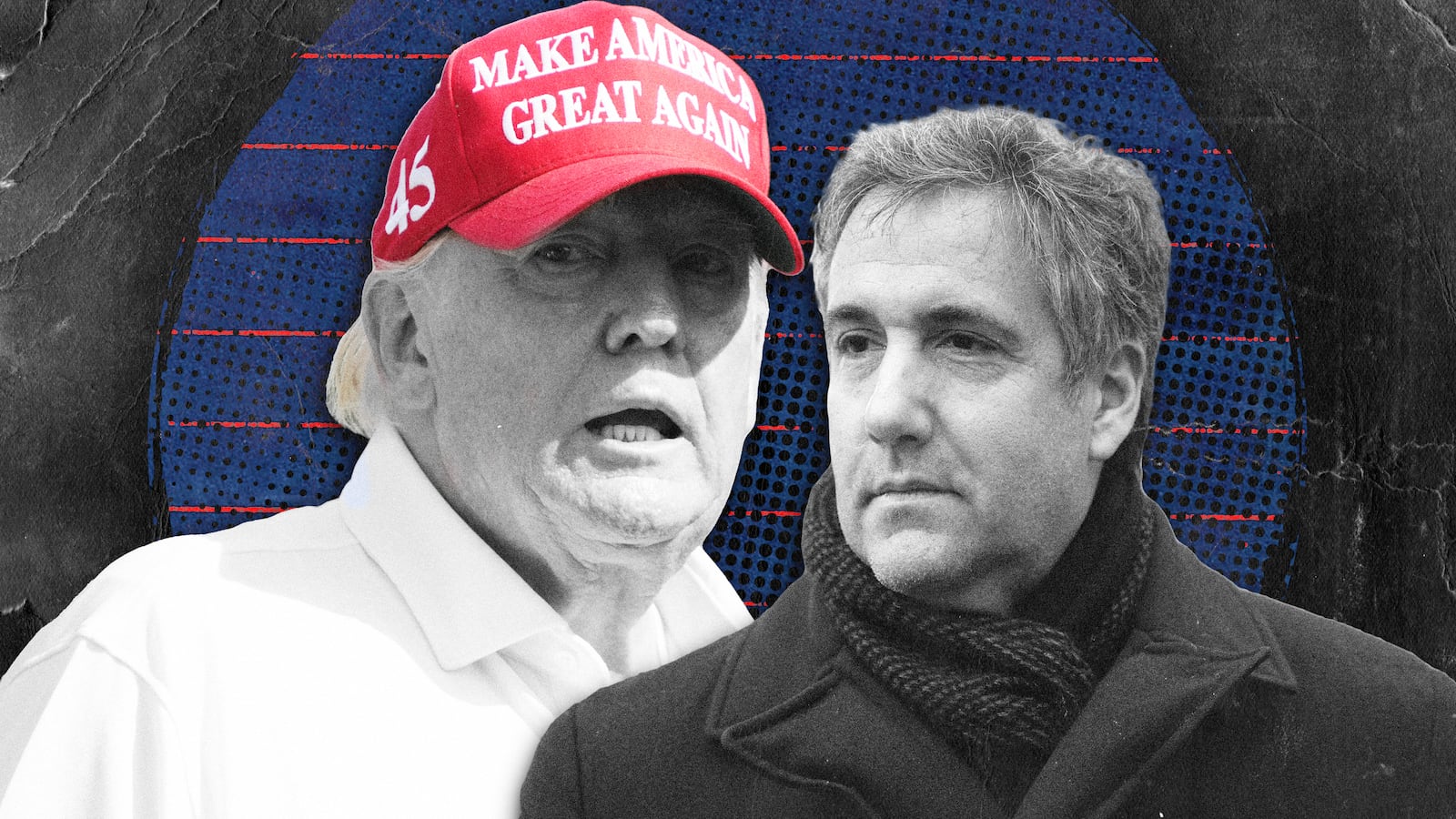Donald Trump will not run for president in 2024, according to his former fixer.
Michael Cohen tells host Andy Levy on this week’s episode of The New Abnormal podcast that while Trump’s popularity has dipped since 2016 and he can’t risk the idea of losing, there are also serious financial implications that could stop Trump from throwing his hat in the ring.
Cohen, author of the new book Revenge: How Donald Trump Weaponized the U.S. Department of Justice Against His Critics and host of the podcast Mea Culpa, told Levy that “one of the problems with Donald is that despite what he will tell you, he has very thin skin. He has an incredibly fragile ego.”
Trump’s personal attorney from 2006 to 2018, Cohen fell out with the former president after the relationship “had gone from fraught to hostile,” according to The New York Times. In August of that year, Cohen pleaded guilty to eight counts including campaign finance violations, tax fraud, and bank fraud. He pleaded guilty in November 2018, to another charge of lying to a Senate committee. He was sentenced to three years’ prison time in December that year and disbarred in February 2019. He spent just over a year in prison before being released early to serve the rest of his sentence under house arrest due to fears over the COVID-19 pandemic.
Cohen described Trump’s 2020 loss to Joe Biden as a “kick to the groin” and said Trump “can’t afford to allow himself to be a two-time loser.”
“One of the things that he knows is that his popularity, even amongst Republicans, has diminished since the 2016 election. People are sick and tired of the chaos that he creates every single day. And I think they’re getting sick and tired of the way that the Trump 2.0’ers are doing the exact same thing, the mimicking of Trumpism in order to win or try to win elections. He cannot afford, emotionally, to be a two-time loser.”
But more importantly, according to Cohen, “if you read the fine print, he has sole discretion over 90 percent of all of the money that his supporters are currently giving him, that makes it into a 90 percent slush fund. So I bet if you look to see how he paid to fix his airplane, which was sitting on the tarmac for a long time, I guarantee it’s coming from that slush fund.
“He’s not using it for what people believe it’s supposed to be, which is political purposes. He’s using it for himself.”
Cohen said that if Trump were to announce a formal election campaign, he would no longer be capable of having that slush fund.
“He has made way too much money too easily to go ahead and give this thing up, especially when he knows that he cannot win a general election.”
Cohen warned of a Handmaid’s Tale-style world if Trump or his fellow acolytes were to return to office, where, like the fictional Republic of Gilead—the totalitarian patriarchal theocracy that rules over most of the territory that belonged to the former continental United States—“you’re going to lose all your rights.”
“We’ve already lost one in the Dobbs decision of Roe v. Wade. Next is Obergefell, and then there’ll be more to follow because this is what this man has done. We need to all work together to ensure that the people that we do elect are not people like Donald Trump.
“America right now is hanging onto democracy by a shoestring. You know, people are totally erroneous when they believe that democracy is part of our Constitution, that democracy is a right. It is not. It is an experiment.”
Also on the podcast, Kali Holloway, a columnist at The Daily Beast and The Nation who guest-hosts this episode with Levy, says that part of the reason Herschel Walker was handpicked to run for Senate in Georgia by the Republican Party is “they wanted a Black candidate to run against [Sen. Raphael] Warnock. They wanted someone who would basically validate anti-Black talking points. They knew that they would be able to exploit his race as a way to shield them from racism. I think we see this with the Republican Party and who it chooses as Black candidates. I think the conception that white conservatives have of the Black community is that you can basically run any Black candidate and Black folks will vote for them.”
Then, Judd Legum, a journalist who founded and writes an independent newsletter dedicated to accountability journalism, Popular Information, discusses a recent article about Amazon and its statement, days after the Jan. 6 Capitol riot, claiming it would no longer give money to any member of Congress who had voted to overturn the election. The problem today, according to Levy, is that the company doesn’t seem to care much 21 months after that statement.
“Yeah,” Legum agrees. “Every month we look at the FEC filings. Amazon was in our list of companies that have mostly maintained their pledge, but in September we saw that they had given to nine House members who voted to overturn the election on Jan. 6, total of $17,500. Not very much money, if you are Amazon, but I think worth noting, because less than two years ago, Amazon said that these members were engaged in an unacceptable attempt to undermine a legitimate democratic process. It was something that they said then that got a lot of attention, so I thought backing away from it is just as newsworthy.”
Listen to The New Abnormal on Apple Podcasts, Spotify, Amazon and Stitcher.







